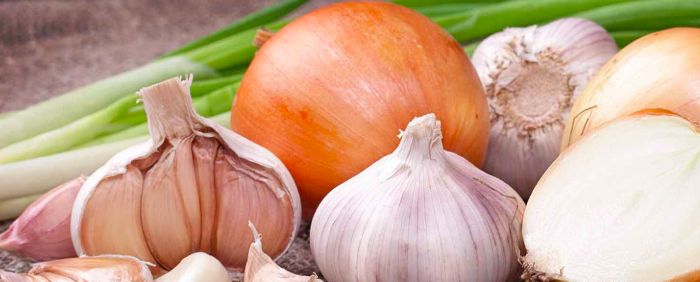
How to extract heavy metals from effluents released by industrial activity? Using garlic and onion peelings, a new study shows . These condiments absorb heavy metals so efficiently that they could become filters on an industrial scale.
Human activity does not create heavy metals . These are present in the earth’s crust and are not harmful as such. However, the exploitation of natural deposits, the metallurgical or mining industry and the use of lead in automotive batteries encourage the diffusion of heavy elements into the environment. Which can then be harmful for humans. The mercury contamination of the oceans, for example has effects on human health. As well as lead poisoning .
The metallurgical and mining industries are the main sources of releases of heavy metals related to humans. In the atmosphere, human activity causes the release of mercury, cadmium, arsenic, chromium and lead. How can the industry manage this waste ? Biotechnologists of the Delhi University recently showed that the waste from the food industry from the processing of onions ( Allium Cepa ) and the garlic ( Allium sativum) could be used to decontaminate industrial effluents polluted with metals.
In the study published in the International Journal of Environment and Pollution ( IJEP ) , researchers showed that onions and garlic absorb heavy metals from contaminated effluents . For their experiments, they used condiment peels from onion treatment and conservation are effective decontamination materials. “This can make technology easy, affordable and with minimal maintenance for small and medium-sized businesses in developing countries, “ the researchers say.
Filtration of heavy metals with garlic and onions
By studying the influence of the acidity, the contact time, the temperature and the concentration of the different materials, the researchers optimized the conditions of realization of a heavy-metal filter on an industrial scale for the decontamination . According to their results, at 50 ° C, the efficiency of the cleaning process is largely dependent on pH. The process is optimal at pH 5. The onion then puts around half an hour to absorb the maximum of heavy metals.
This cleaning process seems to be very effective for lead. This metal is the most troublesome environmental pollutant. The Delhi University team extracted more than 10 mg of lead per gram of Allium from a test solution of 5 g / L metal ions . The condiment waste captures 70% of the ions in solution. Absorbed metals can then be released into a collection vessel using nitric acid .
Bioremediation is a clean solution for decontamination, but it is not often applicable on a large scale. However, using onion and garlic food waste, present in bulk , can be an effective solution for medium-sized industries.